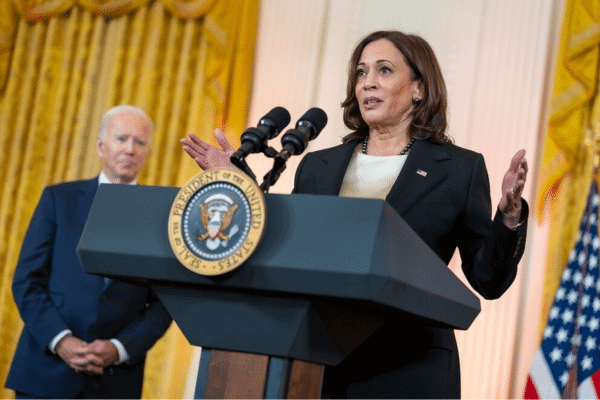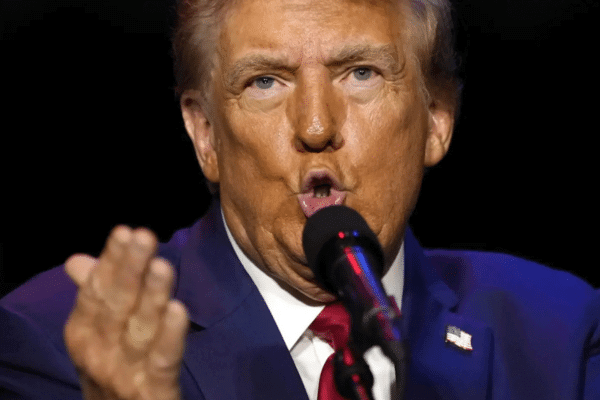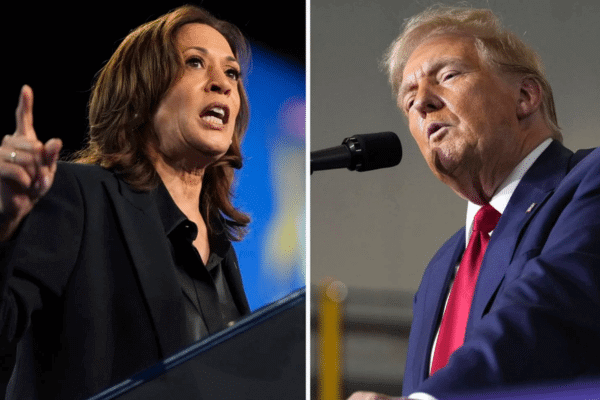People around the world are fixated on the US elections, including millions in India. But which President would be a better bet for India?
Let’s first consider India’s own goals. A look at the next decade shows a focus on economic growth and defense preparedness, while maintaining internal peace through inclusive governance. India is boosting domestic manufacturing, working to create jobs, and looking at becoming a $5 trillion economy by 2027.
In defense, it is trying to strengthen border security against China and Pakistan while strengthening its Indo-Pacific strategy through its relationships with ASEAN and Quad. Internally, it is tackling insurgencies and terrorism while expanding inclusive governance through peaceful elections in Kashmir and expanded healthcare and education that benefits all communities. These combined efforts aim to secure India’s global position and maintain internal stability.
Harris: picking up where Biden left off

Despite her Indian heritage, Kamala Harris has not emphasised a special relationship with India. The US-India relationship under Harris will likely continue to focus on security, defense, and economic ties, especially in the context of strengthening the Quad.
However, one area where Harris’s policies may differ from previous US approaches is in her focus on human rights. For Democrats, especially from the West Coast of the US, a liberal “image” matters, and the lives saved through peace in Kashmir matter little against the administrative revocation of Article 370. The US frames it as a human rights matter, a stance which could create tension with Prime Minister Narendra Modi’s government. Additionally, Harris is likely to prioritise democratic principles in bilateral discussions, in contrast to the more transactional diplomacy seen under Donald Trump. India can rebuff this with pointed questions on America’s treatment of its own minorities, as evidenced by the ‘Black Lives Matter’ movement, but that uncomfortable milieu will linger.
On the other hand, Harris’s liberal immigration policies may help US-India relations. She advocates for expanding pathways for legal immigration and increasing H1-B visas for Indian professionals – This could benefit India’s large workforce of skilled professionals seeking opportunities abroad.
Harris also supports strong US trade relations with India, particularly in technology, but her administration’s focus on re-shoring manufacturing could challenge some Indian exports. However, areas like digital trade and tech collaboration are expected to remain robust. On environmental policies, Harris’s advocacy for climate change initiatives aligns with India’s push for renewable energy development, particularly in solar energy, which could foster greater bilateral cooperation in this area.
Thus, Harris’s overall policies will maintain continuity with that of Biden. The strategic, economic, and security interests between the two countries will continue to drive their partnership.
Trump: America First

Trump’s “America First” policies in his first term as US President prioritised US economic and security interests. His tariffs on steel and aluminum affected Indian exports and led to retaliatory tariffs on US goods. In 2019, the US removed India from the Generalised System of Preferences (GSP), although the impact was only about $180 million, and despite the negative appearances, helped trade volumes to grow. Similarly, while his comments about Indian tariffs on Harley Davidson may have sounded offensive, they benefitted both countries, while reducing the corrupt benefits given to a few Indian conglomerates.
Trump’s “Buy American and Hire American” (BAHA) executive order tightened scrutiny on visas and his efforts to revoke spousal work permits created uncertainty for families. However, these measures were aimed at all countries and India’s proportion of the visas was unchanged.
US-India defense ties also deepened, India became a Major Defense Partner and got access to advanced U.S. military technology. Joint exercises and intelligence sharing intensified, particularly in counterterrorism.
Regrettably, another Indian-origin US Politician Nikki Haley is no longer a candidate – a strong and unabashed supporter of deepening relations with the world’s largest nation, which could have boosted the Indian American Republican vote.
There is a huge caveat though: all these analyses assume that the US itself will have a stable government over the next four years! The last four years saw the US pulling out of Afghanistan, and Biden pulling out of the Presidential race. A weakened US is impotent against Saudi Arabia and wrings its hands while Israel does whatever it wants. It is likely the US itself will be a less critical player on the world stage in four years. India’s biggest challenge isn’t leveraging the next US dispensation, but to better position itself in the world without making as many enemies as China and Russia. With Canada’s Trudeau showing no signs of backing down from accusations of criminal activity, the US President and their position on India will become even more important in the next few years.
READ ALSO: India and Canada at an abrasive impasse





